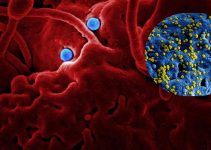The symptoms of menopause can be very diverse. Some women may experience one or more symptoms.
Menopause is the time in a woman’s life when she stops having her periods.
It usually happens between 45 and 55 years old, but it can occur as early as 40 or as late as 60.
You may be wondering how long does menopause last.
Usually, menopause can last from one to four years, sometimes it can be longer.
Menopause is a natural process that happens to every woman when their ovaries stop making estrogen.
The ovaries produce estrogen during puberty, pregnancy, and childbirth to help maintain the menstrual cycle.
When the ovaries stop making estrogen, a woman enters menopause, and her menstrual cycle will stop.
It is related to the decreasing production of estrogen and progesterone and has a lot to do with hormonal fluctuations.
Menopause Symptoms and Early Signs
The symptoms of menopause and early signs are distinct for every woman that experiences menopause.
The most common sign is irregular menstruation, which may cause low fertility in some cases.
Other usual symptoms of menopause are:
- Hot flashes
- Mood swings
- Anxiety
- Reduced libido, or sex drive
- Vaginal dryness
- Sore or tender breasts
- Night sweats
- Reduced muscle mass
- Less hair on the head
- Hair growth on the chest, face, neck, and upper back
- Pain during intercourse
- Dry skin, mouth, and eyes
- Sleep problems
- Depression
A healthy lifestyle can reduce these side effects and other treatments that we will explain below.
Some women experience severe headaches, fatigue, or heart palpitations during menopause as well. However, thyroid disease or anemia can cause similar symptoms.
It is always important to get checked with your doctor.
How does menopause affect bone health?
The onset of menopause coincides with a decrease in estrogen levels that lead to bone loss.
Many women experience some bone loss during menopause, which can lead to osteoporosis.
Estrogen is one of the primary hormones responsible for maintaining and strengthening the bones, and it is usually at its lowest level during this time.
As a result, women are more prone to having fragile bones that are prone to breaking easily.
Another factor that causes bone degeneration is lack of mobility or exercise, which stimulates bone health.
To help maintain your bone health:
- Make sure you eat calcium-rich foods such as dairy products or dark leafy greens.
- Take vitamin D supplements.
- Include regular exercise and weight training in your routine.
- Reduce alcohol intake.
- Avoid smoking.
How to Fight the Discomfort of Menopause
Deal with menopause can be challenging because it can produce physical and emotional changes that might not be easy.
The discomfort of menopause can be due to fluctuating hormone levels as well as lifestyle choices.
Doctors say that it is vital for women to remember that their bodies are constantly changing, and these changes will eventually lead to something new, so it’s important not to panic.
While there may not be a “cure” for menopause, this article will provide tips on how you can ease the discomfort of menopause by making some lifestyle changes or seeking medical help if needed.
There are a few actions that you can do to make yourself more comfortable and live a happier life.
Treatments and Therapies
Menopausal Hormones, Pills, Patches, and Supplements are all treatments women use when going through menopause.
The most popular treatment is the pill taken once a day to relieve symptoms of menopause like hot flashes and night sweats.
There is no one size fits all solution for menopausal hormones, but there are plenty of options for women looking for relief during this time in their life.
1. Menopause Hormone Therapy
Hormonal medications, generally known as hormone therapy, are used to treat the symptoms of menopause.
This information might help you talk with your healthcare provider about whether hormone medicines are a good idea for you.
There are diverse kinds of hormone medicines used during and after menopause.
List of FDA-approved hormone medicines for menopause:
- Combination Estrogen and Progestin Medicines
- Progestin-Only Medicines
- Combination Estrogen and Other Medicines
- Estrogen-Only Medicines
Always speak with your health care provider before starting any treatment.
Menopause Hormone Therapy Side Effects
Hormone medicines can cause serious health problems in women.
Women who take hormone therapy for menopause are at risk of specific health issues such as:
- Hormone medicines may raise your risk of blood clots, heart attack, stroke & breast cancer.
- For some women who are 65 years old or older, hormone medicines may raise their chances of dementia. In a groundbreaking study in the September 2016 issue of the Journal of American Geriatrics Society, researchers found that women who take hormone medications have a 64-70% higher risk for dementia after one year.
- For women who still have their uterus, consuming estrogen-only medicines increase the risk of getting uterine cancer or endometrial cancer. These women might need to take progestin to prevent endometrial cancer.
All warnings and possible side effects of hormone medicines are not listed here. Always talk to a healthcare provider about this before you take them.
2. Treatment of Hot Flashes and Night Sweats
Hot flashes and night sweats are frequent symptoms of menopause.
They can be treated with hormone therapy and medications to help regulate the body’s natural hormone levels.
There are several prescription medications that help relieve menopausal symptoms, such as hot flashes and night sweats, including the following:
- Clonidine
- Gabapentin
- Menopausal hormone therapy (MHT)
Some time ago, the FDA announced the approval of paroxetine for hot flashes.
The SSRI antidepressant might be effective in managing the symptoms of menopause and reduce the severity of hot flashes.
Night sweats:
Night sweats typically occur in the wee hours of the morning, usually between 2 am, and 4 am.
Drinking plenty of fluids throughout the day is vital so that your fluid level remains high enough for nighttime sweating to produce a cooling effect.
Hot flashes:
Hot flashes are sudden surges of intense warmth that can last from a few seconds up to five minutes or more.
Some people experience sweating, heart palpitations, trembling, and general anxiety, as well as hot flashes.
3. Treatment for Vaginal Dryness
- A water-based lubricant (not petroleum jelly)
- MIT
4. Treatment for Irregular or Missed Periods
Although irregular periods are usual during perimenopause or the menopausal transition, women who experience heavy bleeding or menstruations close together may want to talk to a doctor about regulating their period.
The doctor may recommend:
- Birth control pills in low dose to manage menstrual bleeding
- MIT
5. Treatment for Osteoporosis and Bone Loss Related to Menopause
Osteoporosis is an age-related disease that causes bones to become fragile and break easily. It is a severe and widespread disorder that can lead to debilitating pain and immobility.
As post-menopausal women are the most at risk for developing osteoporosis, there has been a lot of focus on the importance of preventing this disease.
If you suffer from or are at risk for osteoporosis, your doctor may recommend bone-strengthening medicine or supplements to prevent future bone loss.
Medications commonly prescribed to treat osteoporosis include:
- Raloxifene
- Calcium
- Calcitonin
- vitamin D
- Parathyroid hormone
- Bisphosphonates
Warnings
Beware of unproven, nonscientific treatments for Hot Flashes.
You may have heard of black cohosh, DHEA, or soy isoflavones from a friend of yours who uses them to treat hot flashes.
These products are not proven effective, so they offer no solutions for the problem other than expensive trial-and-error that could potentially hurt your liver.





